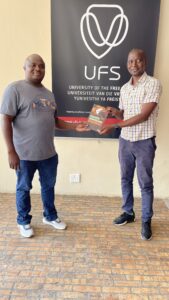
Commodities in Southern African History
YSI Workshop with International Studies Group
Start time:
September 4 @ 8:00 am - September 5 @ 5:00 pm
EDT
Location:
Benito Khotseng Building, International Studies Group, Bloemfontein, Orange Free State, 9300
Type:
Workshop

How to attend
Deadline:
12th April 2024
Description
The COVID-19 pandemic that affected Southern Africa, by interrupting the process of grain exports has laid bare the central position of commodities and their regional impact. In the context of Africa, and Southern Africa in particular, we ask: What can the production, consumption and global movement of commodities tell us about national, regional and transnational histories of Southern Africa and beyond? And how can the study of histories of commodities in Southern Africa bring African experiences into conversation with globalization and global history?
Commodity history has attracted the attention of different disciplines, including sociology, anthropology, economic and business history, social and cultural history, global and transnational history. Recent scholarship has examined commodity history, for example Carmona-Zabala’s edited volume, Commodity in History: Theoretical Reflections and Empirical Case Studies sheds light on the importance of commodities in history. Carmona-Zabala’s introduction in the edited volume has observed that commodities: “are not just material, but are also produced, traded, desired, regulated and consumed by humans.” However, as Carmona-Zabala rightly admits: “certain regions of the world are better represented than others” in the volume. Similarly, a British Academy Research Project, Commodities of Empire (CoE), whose aim is to explore the networks through which particular commodities circulated both within and between empires, has not paid much attention to Africa, Southern Africa in particular. However, commodities influenced colonialism in the Global South, and have continued to impact the trajectory of the continent’s social, economic, environmental, and political histories. They created local and global networks of commercial and cultural exchange. The negation of Africa, Southern Africa in particular, in recent scholarship focussed on the history of commodities warrants for a workshop for scholars working on commodities in Southern Africa.
To bring African experiences into the conversation with globalization and global history, the workshop aims to explore how the study of commodities (the production, consumption as well as global movement of commodities) and their histories in Africa, Southern Africa in particular, can aid our understanding of national, regional and transnational histories of the region and beyond. The primary focus of the workshop is history of commodities in Southern Africa.
We welcome contributions from scholars working on the history of a specific commodity with the purpose of illuminating concrete historical developments, and more purely reflections on the function(s) of the commodity as an instrument of historical change in Southern Africa. The workshop is open to all historical periods. Early career researchers are encouraged to apply. Contribution can focus on, but not necessarily limited to, the following themes:
- Social, economic and political circumstances under which commodities are produced and consumed;
- Capitalism, colonialism and commodity production and distribution networks;
- Cultural interactions and exchanges through commodities;
- Histories, politics, regulations and governance of commodities;
- Historiographies of commodities;
- Smuggling and circulation of commodities;
- State, state institutions and the production and consumption of commodities;
- Gender, race and the impact of commodities on marginalized groups;
- Environment and commodities;
- Commodities and science, technology and medicine; and
- Material culture, land and labour.
The workshop will be held in-person under the auspices of the Young Scholars Initiative (YSI Africa working group) and the International Studies Group (ISG) at the University of the Free State in Bloemfontein, South Africa on 4-5 September 2024.
Papers presented at the workshop will be published either in an edited volume or a special issue. The workshop will explore the possibility of establishing a Southern African Commodity History Network (SACHN).
We invite interested scholars to submit: (1) an abstract (300 words max.); and (2) a one-page Curriculum Vitae (CV) via the application link.
For more information contact: [email protected]
The application deadline for submission of the Abstract and CV is 12 April 2024.
Notification of acceptance: 30 April 2024.
Successful applicants will be required to submit a full paper by 31 July 2024.